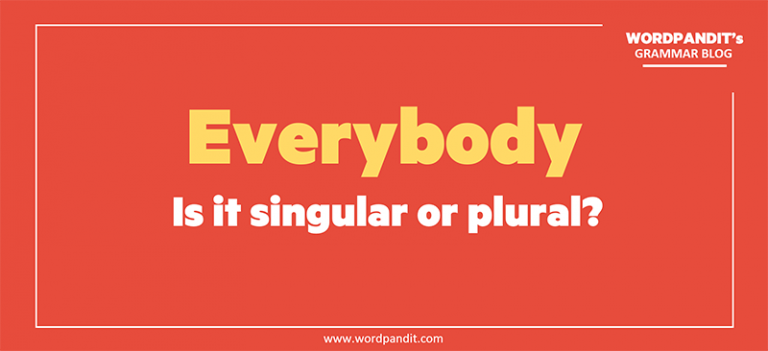Well, when you say everybody, it sounds and means that you are addressing any people at once. And, when there are many people involved, it automatically becomes plural pronoun. However, it is not true, everybody/everyone, according to the grammar rules is singular and takes well with it only singular pronouns like he, she and singular verbs like is.
According to the definition, an indefinite pronoun like everybody/everyone refers to one or more things, objects and people.
See this: 1) Everyone/everybody loves Raymond.
2) Everyone/everybody are happy.
3) Everyone/everybody brought his/her phone.
4) Everyone loves their job.
- In the first case everyone/everybody (indefinite ‘singular’ pronoun) uses singular verb .i.e. loves, which is a correct way to use everybody.
- In the second case verb used is plural .i.e. are, so the sentence becomes wrong.
- In the third case singular pronoun .i.e. he/she used with everybody makes the sentence right.
- However, according to the rules, the fourth sentence should be wrong. But, in some cases everyone is used with a plural pronoun like ‘they’ and singular verb like loves. And, if you listen to yourself, it sounds right too.
But, the standard rule remains that everyone/everybody is a singular indefinite pronoun and it must be used with singular verb and pronoun.
Exercise for you:
1) Everyone/everybody will do__________ best in exams.
2) Everyone/everybody will bring _______________ phones to the meeting.
3) Everyone/everybody ____________ dogs.
4) Everyone/Everybody ___________arrived.
5) Everybody/everyone __________ to reach on time for a meeting.
Answers:
1) his/her
2) his/her
3) hates/loves
4) Has
5) Has













